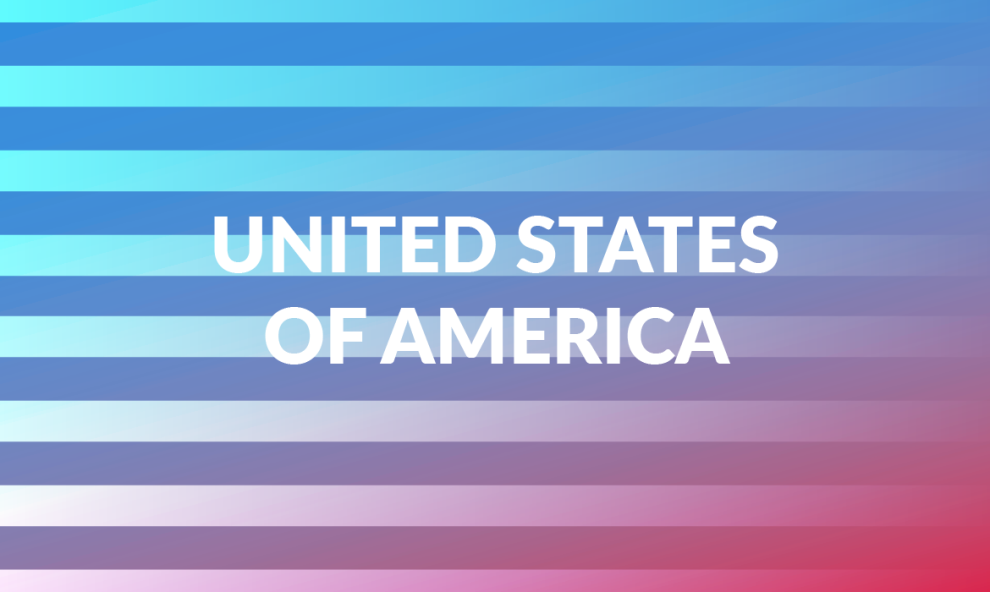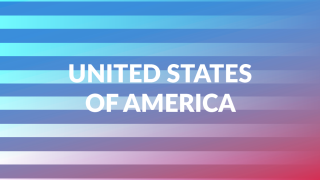The true crisis of the U.S. Government is not fiscal, but political. The fiscal component is a mere symptom, a physical manifestation, of the dysfunctionality of what its political system has come to. The immediate trigger has been the legal requirement concerning the legislative power’s approval of the government’s debt limit, but the heart of the matter derives from a profound cleft that exists in the society regarding the government’s function in the society and in development. Perhaps most revealing of the nature of the problem is the fact that the two traditional political parties no longer represent society as a whole, rendering it ever more dependent on legislators of organized groups with very specific interests and narrow agendas.
There are many manifestations of the political process that our neighbors to the North are undergoing, beginning with the acute differences of perspective between the “Blues” and the “Reds”. If one scrutinizes the U.S. electoral map throughout the last ten or fifteen years, what’s evident is the electoral polarization that it has experienced and that has divided voters into Blues, or Democrats, and Reds, or Republicans. With minor exceptions, the Blues dominate the coasts while the Reds monopolize the entire remainder of the country. The colors do nothing more than evidence radically distinct forms of understanding life and expressing longings about the future. The Blues tend to hold Reds in disdain and qualify them as primitive and unrefined, while the Reds qualify the Blues as elitist and Europeanized. While a caricature, this constitutes a factual reflection of prevailing attitudes and perceptions.
In my academic activities, I visit many U.S. universities every year, some in mid-America, others on the coasts. All are first class in terms of the quality of their faculty members, academic excellence, number of Nobel prizes, and other means employed to compare universities. However, the contrast between some of these and others could not be greater. At a university in St. Louis, Missouri, for example, several professors arrive in pickups and more than one is a member in good standing of the National Rifle Association (NRA), that is, they belong to the organization that bands together those who lobby for the right to bear arms, and many of their political or social attitudes are exceedingly conservative. In places like Boston or New York, the scenario is precisely the contrary: professors’ cars of choice are hybrids and their social and political preferences are clearly liberal.
For some, the government’s function is to do the least possible, leaving opportunities for development to the individual and the market. For others, the government should guarantee a basic platform of services and rights that are, in their view, the essence of civilization. In one of the most highly disputed and controversial themes of recent years, the provision of health services, some want it to be the individual who makes the decision by acquiring health insurance, while others consider health care to be an elemental obligation of the State. The same type of differences exist in other matters: Social Security; defense spending; the right to possess arms; aid for poverty; international commerce; subsidies for companies and persons enduring the avatars of imports; illegal migration. On the Republican side, they think that the individual should decide how to spend their money; therefore, it’s better to have a low tax regime. On the other hand, the Democrats think that the government is there to promote equality in the society and that taxes are the way to defray its cost.
Irrevocably, these differences in perspective are reflected in the government’s budget in good measure because for decades everyone got what they wanted until the sum totals became unmanageable, that is, the fiscal crisis in which it now find itself embroiled. What are noteworthy are not the problems, but that the proposals for the solution of each of these are not even fathomable to the other side. In general terms, Democrats accept no cut in social programs, while Republicans accept no tax increase. The heart of the matter does not reside in the defense of these programmatic and ideological principles, but in negating the existence of the problem. Social programs, above all Medicare, for adults over 65, are very popular but have no sustainable financial source and their cost grows at enormous speed. For Democrats, the issue of financing is a mere and inconsequential trifle. The equivalent for Republicans is defense expenditure and the costs of its diverse military exploits. Neither recognizes the scale of the outlays or the evident alternatives: less spending or more income.
The Tea Party Movement (TEA, backronym for Taxed Enough Already…), arising to a great extent in reaction to President Obama’s fiscal stimulus project and universal health care plan, proposes a return to basics: cut back on everything superfluous for a return to a situation of fiscal health and control of the growth of the government’s tentacles in all ambits of life. Independently of the philosophy driving this, many of the delegates sponsored by the party sponsored and who today constitute the congressional majority, its practical implementation has been fundamentalistic: all or nothing. For his part, President Obama has been equally intransigent: no concession in his stellar programs and nothing without a tax increase. This is the underlying theme.
Beyond the personalities, perhaps the major practical problem is that the two traditional parties no longer represent more than 65% of the electorate (in comparison with in excess of 90% twenty years ago). This has led to no one wishing to assume high risks with regard to their re-election and to permanently fear the wrath of their sponsors. One acute (and cynical) observer in Washington says that the immediate political problem is very simple: to be re-elected, Obama requires the support of the Republicans and that would imply sacrificing his traditional base. It is no more and no less than politics as usual: first are the politicians’ personal interests, and the rest is the rest. Some day they will emerge from their political crisis because such is the nature of their pragmatism; but that does not change the trail of uncertainty and dysfunctionality that they are leaving in their wake.
What is astounding about Washington today is the disdain of its political class for the transcendence of the U.S. as a superpower. Practically no one cares about the consequences of its action (or inaction) on the dollar or on international trade, themes that are crucial for the rest of the world. Such may be the privileges of being a superpower, but it is not a good way to run an empire.
Political Crisis






Comments